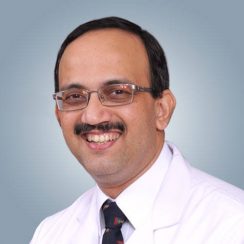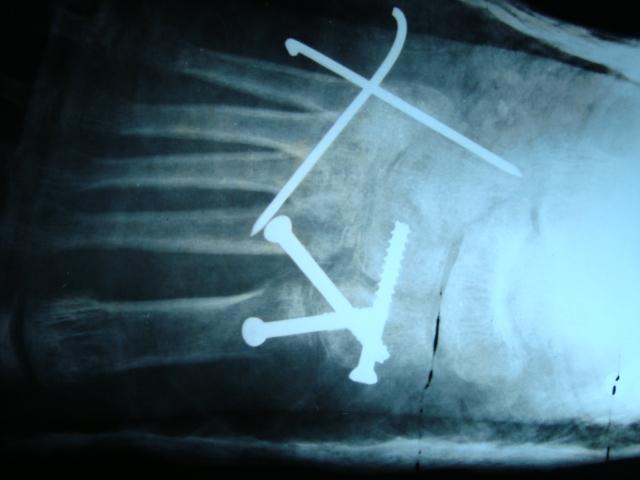Editorial
Case Report | Volume 9 | Issue 4 | JOCR July – August 2019 | Page 1-2 | Patwardhan S. DOI: 10.13107/jocr.2250-0685.1450
Parental counselling in Paediatric Orthopaedics
Authors: Sandeep Patwardhan [1,2]
[1]Professor & Paediatric Orthopaedic Specialist Sancheti Institute for Orthopaedics & Rehabilitation Secretary, Pune, Maharashtra. India.
[2]Paediatric Orthopaedic Society of India
Address of Correspondence:
Dr. Sandeep Patwardhan,
Professor & Paediatric Orthopaedic Specialist, Sancheti Institute for Orthopaedics & Rehabilitation. Pune, Maharashtra. India.
E-mail: sandappa@gmail.com
Being a paediatric orthopaedic surgeon, a large amount of time is spent in talking to parents, for the very simple reason …. the patient is usually not symptomatic or the decision maker or is unable to comprehend the instructions.
In my experience counselling is needed in the following situations
1. Parental concern regards possibility of disease deformity or disability
2. Pre-operative counselling regards nature of surgery complications and consent for surgery
3. Post-operative care and need for regular follow ups till maturity
4. Psychiatric counselling for Psychosomatic conditions
All these situations require a firm authoritative clear communication albeit kindly and giving adequate time and attention.
Let’s talk about these situations in more details.
1. The most common complaint that young parents come to you in OPD is regards appearance of the legs or way of walking. Either bowlegs or knock knees or In toe Out Toe walking. Flexible Flatfeet deserve special mention as they cause a lot of social or cultural stigma and need sensitive handling. Very often it’s a concern arising from a relative or known person who has suffered some disability in adulthood with similar shaped limbs etc. Sometimes it’s the grandparents or even neighbours or peers at Play groups who scare the young mother into believing something is wrong with the toddler.
A patient hearing as to what exactly is the concern goes a long way before counselling such parents. Always try to find out who is the exact concerned person, the mother, the father, or the grandparents and talk to that person with direct eye contact. It is important not to trivialise their concern at the outset and explain in clear words the benign nature and spontaneous correctability of these conditions with minimum or no functional consequences. Rarely you may have to quote literature and it always helps if you have a pictorial depiction of correction as it happens.
Corrective appliances, Arch Inserts, Special shoes, Physiotherapy have little or no role and at the most may play a role of Psychological satisfaction that treatment is being done.
Such advise may sometime be counterproductive and create more anxiety regards compliance with shoe wear and lack of any correction despite wear and I feel its best avoided.
At the same time its important to not miss pathologic deformities and take appropriate x rays when needed and offer appropriate treatment.
2. The second important counselling happens in the perioperative arena. It takes time for parents to accept surgery as the only or correct option when suggested and it would be prudent to call them more than once so that the reality sinks in well. It may be wise to suggest that they may seek a second opinion if needed especially for elective cases. Explain benefits and complications clearly prior to surgery and always under promise and over deliver.
Very often the concern is anaesthesia and its risks esp. in young children and it helps if you send the parents to understand implications of anaesthesia to a dedicated Paediatric Anaesthesiologist.
Try to perform day care or short stay procedures as far as possible as children prefer to be in their homes as soon as possible and there may be another child to take care for the parents at home.
Preferably get all work up before admission and operate early morning rather than afternoon to keep with the diurnal rhythm.
Always explain Plaster related problems and care personally to parents and answer dietary concerns carefully
Discuss the X ray and Hardware related concerns always at time of discharge.
3. Post Op Counselling: Again, an important part at time of Suture removal and Plaster removal. Even if your assistant performs these actions it’s important that you supervise these.
Explanation regards hygiene, washing, rehab protocols and importance of regular visits with changing nature of disease is very important in children
Congenital conditions, deformity corrections, CP, growth issues need repeated reinforcement with repeated counselling esp. in complex situations.
The more difficult a surgery the more you need to talk, and reassure that you are reachable at any time for emergencies.
4. Some paediatric conditions actually may need a psychiatric counsellor esp. for Attention seeking adolescents with psychosomatic back or limb pains, Tics, Behavioural disorders.
Its important to identify Hysteria, malingering and Sexual abuse as well as rare conditions like Munchausen by Proxy syndrome and a Paediatric Counsellor may be very useful here.
To summarise
Counselling parents for various paediatric conditions is very important and is an acquired skill with experience, knowledge, insight, and finally humour.
Use all possible technological aids for counselling too, but remember to be empathetic.
Dr. Sandeep Patwardhan
Editor – JOCR
| How to Cite This Article: Patwardhan S. Parental counselling in Paediatric Orthopaedics . Journal of Orthopaedic Case Reports 2019 July-August;9(4): 1-2 |
|
|
| Dr. Sandeep Patwardhan |
[Full Text HTML] [Full Text PDF] [XML]
[rate_this_page]
Dear Reader, We are very excited about New Features in JOCR. Please do let us know what you think by Clicking on the Sliding “Feedback Form” button on the <<< left of the page or sending a mail to us at editor.jocr@gmail.com





